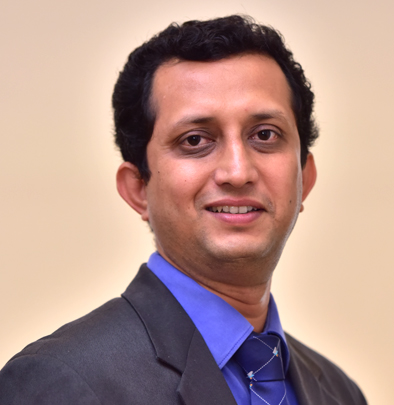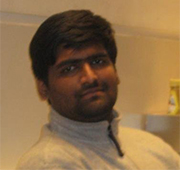Staying ahead of the technical assistance curve: Six lessons from FinTech start-ups in India
by Sunil Bhat, Anil Gupta, Sandeep Koujalgi and Priyanka Chopra
Aug 22, 2019
7 min
About a year back in August 2018, MSC collaborated with the Indian Institute of Management Ahmedabad’s Centre for Innovation Incubation and Entrepreneurship to start the journey of Financial Inclusion Lab. The Lab currently receives support from the J.P. Morgan, Bill & Melinda Gates Foundation, the Michael & Susan Dell Foundation, and the Omidyar Network. The Lab supports start-ups that develop innovative, technology-enabled solutions in the areas of financial technology, livelihoods, and skilling for the benefit of low- and middle-income (LMI) communities. MSC provided technical assistance (TA) to these start-ups. This blog focuses on the lessons learned from this TA program where we highlight six key insights that could be helpful both to investors, consultants, and other organizations which plan TA programs for similar start-ups.
Advances in technology have powered some of the most exciting breakthroughs in financial inclusion in recent years – and India has been at the forefront of many of these innovations. However, it’s often difficult for the country’s entrepreneurs and startups to build and grow their tech-focused businesses, while ensuring that the benefits of their work are widely distributed among their customers.
To help address these challenges, the Indian Institute of Management Ahmedabad’s Centre for Innovation Incubation and Entrepreneurship set up a Financial Inclusion Lab in August 2018, as a part of its Bharat Inclusion Initiative. The Lab is incubating around 60 fintech startups that are serving India’s low-and middle-income (LMI) segment (i.e. people earning US $2 –10/day). It will provide support to six cohorts of these businesses, spread across four years, with the first cohort of 11 early-stage startups selected last September (2018).
This support starts with an intense six-day boot camp, in which each team attends workshops on understanding customers and products, and receives guidance from experts and mentors. The Lab team helps identify risks to be mitigated, problems to be solved and assumptions to be validated as these businesses strive to grow. Diagnostic sessions allow the participating startups to identify the challenges they face and define the support they need.
In response to these diagnostic sessions, MicroSave Consulting (MSC*) is offering short technical assistance (TA) projects to these young businesses. The TAs also include primary research covering a sample of customers in the field. MSC has provided TA to many established financial institutions across the globe, but the circumstances required us to tailor this assistance to the unique needs of these nimble startups. To that end, we designed the TA to be “SMART” — Specific, Measurable, Achievable, Result-oriented and Time-bound. In the process of designing and delivering this TA, the MSC team picked up six key insights that could be helpful both to startups, and to the investors, consultants and other organizations that support them. We’ve highlighted these lessons below.
Lesson #1: Goals are good. But flexibility is better.
Startup managers are keen, ingenious, agile and quick learners. They want to make the most of any TA project. They meticulously set objectives and expectations based on feedback from the project and consultants, carefully deploy resources, and work hard to ensure that the final recommendations are the right match for achieving their objectives. They make strategies on the go, and are eager to test out and implement any “light bulb moments” that take place during the project. As believers in mid-term course corrections, they may ask consultants to include additional objectives into the TA project plan from time to time.
To support this flexibility, consultants may need to tweak their research frameworks, questions and objectives midway through the TA project. Startups are keen to measure the progress they’ve made during the project, so they will appreciate any mid-term updates from their consultants on their progress, challenges and findings.
Quick Tip: Run frequent check-ins, stay committed to your TA project plan – but be flexible in your approach.
Lesson #2: Be brief. Enough said.
Tolstoy famously said, “The two most powerful warriors are patience and time.” Ironically, startups are running out of both. Startups are in a hurry: They’re nimble and seeking fast results. This is in contrast to incumbent financial institutions, which take time for ideating, brainstorming, planning and then executing assignments. Startups conduct all of these activities – but in a much shorter period. They build their competitive advantage by focusing on rapid, agile, tech-enabled and low-cost solutions. Their sense of urgency also comes from the fact that many startups have their eyes and mind on becoming the next Uber, Alibaba or Airbnb – rapidly. Time is money. Each additional day translates to additional burn. Hence, they do not have the patience for long research exercises. Downtime costs pinch hard.
All the startups in our first cohort wanted to start the TA simultaneously. Consequently, MSC had to arrange resources for multiple startup TA projects. Startups also want and need to understand their business ecosystem, in terms of market size, loan size, default rates, repayment rates, geographies and more – another lesson for MSC as we planned TAs for others.
Quick Tip: Plan fast, keep details crisp, make presentations sharper and stronger, cut theory and focus on action. Be lucid, customize your advice to the startup’s appetite for change – and don’t forget to use data points to back up your arguments.
Lesson #3: The LMI segment: Not as simple as it looks
Startups have to focus on the trinity of price, product and customer service. Their survival depends on the value they bring to customers. To achieve this, they need to understand their customers and deliver innovation. The startups had the most difficulty understanding the low-and middle-income segment, the Lab’s focus. And these startups are often at a loss to fathom what LMI customers specifically want.
Because of this, these enterprises run the risk of replicating cookie-cutter solutions used for other customer segments – a risky proposition, to say the least.
Behavioral science-based persona mapping can help immensely. Persona mapping enables startups to segment markets based on customers’ behavioral traits, and then develop value propositions, marketing messages, and user experiences and interfaces accordingly. In our TA, persona-building exercises created “light bulb” moments for many participants.
Quick Tip: Help startups go from being customer-centric to customer-obsessed by familiarizing them with their customers’ key characteristics.
Lesson #4: Being prepared = Half the battle
During fieldwork, startups contributed to the behavioral research exercises by providing human and other resources to complement the work of MSC consultants. Either the co-founders themselves or their teams partnered with MSC during field visits. The resources they contributed also included geographical know-how, which MSC used effectively to find respondents and locations for research on the startups’ customers. The startups were also keen learners who picked up crucial research lessons, which will prove instrumental when they conduct research on their own.
Quick Tip: Always clarify the role of any additional resources provided by TA participants: They may either aid in customer research, or tag along as keen students. Either way, you cannot depend entirely on the startups’ resources and must be prepared on your end.
Lesson #5: Research or survey: Choose wisely
One of the startups’ goals from the boot camp was to understand the behavior of the LMI segments. The behavioral research exercises conducted by MSC seek this understanding through an intense approach, with smaller sample sizes and an in-depth process of individual or focus group discussion – as opposed to a traditional survey, which is closed-ended and quantitative. These exercises tend to provide a deeper understanding of the target segment, digging into the “whys” and the “hows” of customer behavior.
This inherent difference was not immediately apparent to startups. They were not initially comfortable with smaller sample sizes, and pressed for larger samples to cover multiple geographies. After the merits of behavioral qualitative research were explained to them, they saw the clear value of this approach.
Quick Tip: If you work with startups on shorter timelines, use behavioral qualitative research exercises only after explaining their benefits and relevance.
Lesson #6: The world needs connections
Startups thrive on connections and contacts. The startups in our Lab swear by the principle “collaborate or die”: Partnerships with other businesses augment their impact and are critical cogs in the wheel. Consultants should build this element into the TA plan, helping startups meet new potential collaborators. In this Lab, timely mentorships ensured fresh new interactions, which were much appreciated by the startups.
Quick Tip: Include elements – like mentorship and meetings – that connect startups with people, firms and experts who could benefit their businesses.
These lessons provide a good starting point for supporting startups – but they’re not the end of the learnings we’re generating. As our cohorts continue, more lessons will emerge. The Lab boasts an impressive list of startups innovating to make a difference to the Indian LMI ecosystem. They are customer-obsessed and want to maximize the country’s conducive fintech environment to leapfrog ahead of incumbents. Considering the digital revolution that has swept through India over the last five years, these fintechs are up against ever-increasing customer demands driven by a generational shift. For consultants, investors and others aiming to support these startups, it’s essential to keep up with the dynamic nature of their businesses – and to stay ahead of the TA curve.
Authors’ Note:
The Bharat Inclusion Initiative (BII) helps tech entrepreneurs across the pre-incubation, seed and scale-up stages. This includes access to research fellowships, incubators, accelerators, seed funds and similar support programs to create an end-to-end enabling ecosystem to bring inclusive, for-profit businesses to life. The program is supported by the Bill & Melinda Gates Foundation, J. P. Morgan, Michael & Susan Dell Foundation and the Omidyar Network.
Read about the individual stories and struggles of the startups in Cohort 1:
Startups offering savings
Startups offering credit/lending
Startups offering insurance
Startups that are enablers
This blog was first published on NextBillion.
Written by

Sunil Bhat
Associate Partner
Anil Gupta
Partner
Sandeep Koujalgi
Vice President - Bharat Inclusion Initiative at Centre for Innovation Incubation and Entrepreneurship
 by
by  Aug 22, 2019
Aug 22, 2019 7 min
7 min
Leave comments